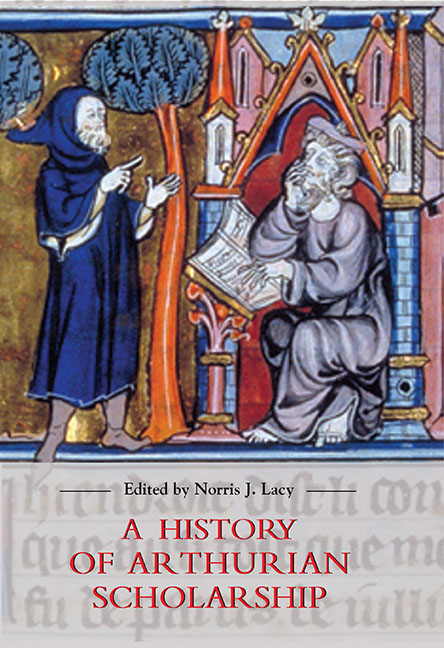Arthurian Origins
Published online by Cambridge University Press: 18 March 2023
Summary
‘Did King Arthur really exist?’ This is the Inquisition for Arthurian scholars. It does not matter whether or not the question interests them – and for many of the greats it did not – it will still be uttered by nearly every student or new acquaintance who discovers that you study Arthur. To make matters worse, there is no easy answer.
The scholarly quest for Arthur's origins goes back at least as far as the twelfth century, when historians like William of Malmesbury and Henry of Huntingdon tried to distinguish between historical fact and a legend growing exponentially. The question certainly concerned Geoffrey of Monmouth, though he seldom distinguished fact from legend in his History of the Kings of Britain (c. 1136–38). Gerald of Wales provided detailed commentary following the first Arthurian excavation, when, in 1191, the monks of Glastonbury exhumed the alleged graves of Arthur and Guinevere. Most medieval chroniclers eagerly accepted Geoffrey's account of Arthur's career, though William of Newburgh was an early skeptic. Still it wasn't until the sixteenth century when scholarly critiques appeared, most notably that of the Italian humanist Polydore Virgil in his Historia (1534). Some men, commented the English printer William Caxton, ‘holde oppynyon that there was no suche Arthur, and that all suche bookes as been maad of hym ben but fayned and fables’. Such skeptical voices, however, were drowned by the Tudor antiquarians and genealogists who provided Henry VIII and Elizabeth I with the most famous of British royal ancestors.
Polydore Virgil and later critics have pointed out that, in discussing Arthurian origins, there is a real problem of sources. The period that most people think of as the Arthurian Age is the fifth and sixth centuries A.D., a period I have termed the Brittonic Age because we are dealing primarily with a Brittonicspeaking population and British writers and prominent figures. Having said that, there are very few written sources for the period after 410, when Britain was effectively separated from the Western Roman Empire. From the Britons we have the letters of St Patrick, a lengthy sermon by Gildas, a couple of early monastic penitentials, and some brief inscriptions on memorial stones; from the Continent only a few scattered mentions of British affairs in chronicles and hagiography.
- Type
- Chapter
- Information
- A History of Arthurian Scholarship , pp. 1 - 18Publisher: Boydell & BrewerPrint publication year: 2006

